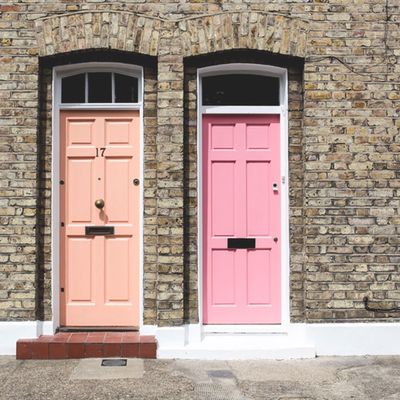
How To Deal With Bad Neighbours
Make Contact
It’s not something anyone wants to do, but if you think your neighbours are becoming a problem, you need to make contact with them first before you do anything else. “When broaching any problem with a neighbour, communication is always key,” Gemma Richards, Associate in the Property Litigation team at Barlow Robbins, tells us. “As a first step, it is important for neighbours to get to know each other, as this will hopefully make it easier to discuss issues before they become serious problems.” Try and introduce yourself to your neighbours and broach the issue in a friendly manner, whether that’s face-to-face (which let’s face it, is probably best) or via letter or phone call. The Citizen’s Advice Bureau suggest telling your neighbour how their behaviour is making you feel and what would help, so you can come to a compromise together – there’s no need for things to turn nasty straight away.
Speak To Your Local Council
If you think the problem has got bad enough with your neighbours that you need a hand sorting it out, speak to your local council – you can find yours here. Give them your neighbours address and name. The Citizen’s Advice Bureau advise to describe the issue with such details as how often it happens, how it’s affecting you, what you’ve done to try and solve it, and who else you’ve reported it to. Send over with your complaint any evidence you’ve collected: “Ask when you’ll hear back and what to do if the problem gets worse. If you report the problem by phone, make a note of the date and time you call and write down the name of the person you spoke to. You might need these details if you take the problem further.
Know Your Numbers
If you think your neighbours are engaging in antisocial behaviour, like making too much noise or hosting parties at inappropriate hours, you should speak to your council. Most areas will have a 24-hour emergency and noise nuisance number that you can call. It’s important that you do this, as the call will be logged (and can be used as evidence in future) and usually, with regards to noise complaints, a council member will be sent to the property to assess the noise levels. Frustratingly, the noise might have ended by the time they make it (sometimes it’s not always possible for them to come out to your property straight away), but having that call logged could be key.
Write Everything Down
The first thing you’ll be asked in a serious dispute with your neighbour is whether you have evidence of such issues. So, it’s important to keep a log of everything that happens. “Its recommended individuals keep a diary of all events, as well as any correspondence between disputing parties, including emails, Facebook posts and text messages,” Gemma advises. You could also make video and audio clips of the problem, and Gemma says to consider installing CCTV cameras if you think the problem is bad enough.
Use A Third Party
If you think it can’t be resolved between the two of you, then it’s time to get a mediator involved. “The use of a third party is an effective way to diffuse a dispute. This could be through a local council, a paid-for independent mediator, or a solicitor, or an MP who could write to a neighbour on your behalf,” Gemma explains. A mediator will help to put things right if you and your neighbour can’t agree how – it’ll be someone who doesn’t know either of you and who’s trained to resolve these kinds of disagreements. If you can’t find a suitable mediator, contact your local council or contact the Civil Mediation Council for help – the council might be able to help you even if you’re not a council tenant.
Complain To A Governing Body
It’s time to take it higher. You can complain about them via their complaints process which you’ll find on their website, making sure you make note of every time you have contacted the council about your problem. After this, you can take it to the Local Government Ombudsman. They’ll be looking out for such problems as whether your local authority sent someone out to visit you to find out more about the issue. if anyone came to witness the issue after an emergency call-out, or whether your local council simply accepted your neighbours were causing problems but didn’t do anything to stop them. Hopefully this’ll help to get you the result you’re looking for.
DISCLAIMER: We endeavour to always credit the correct original source of every image we use. If you think a credit may be incorrect, please contact us at info@sheerluxe.com.































